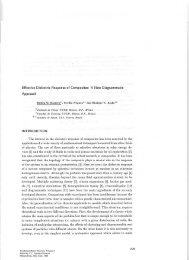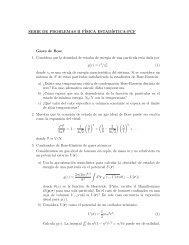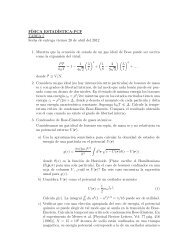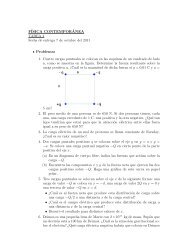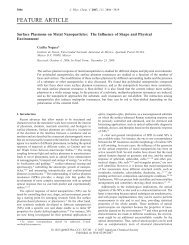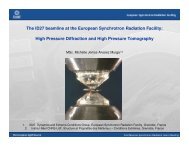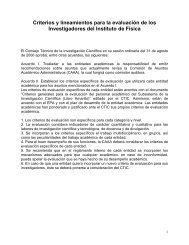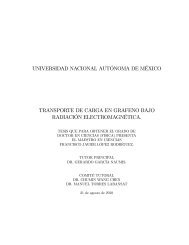Intel(R) - Computational and Systems Biology at MIT
Intel(R) - Computational and Systems Biology at MIT
Intel(R) - Computational and Systems Biology at MIT
Create successful ePaper yourself
Turn your PDF publications into a flip-book with our unique Google optimized e-Paper software.
10 <strong>Intel</strong>® M<strong>at</strong>h Kernel Library User’s Guide<strong>Intel</strong>® Optimized MP LINPACK Benchmark for ClustersThe <strong>Intel</strong>® Optimized MP LINPACK Benchmark for Clusters is based on modific<strong>at</strong>ions <strong>and</strong>additions to HPL 1.0a from Innov<strong>at</strong>ive Computing Labor<strong>at</strong>ories (ICL) <strong>at</strong> the University ofTennessee, Knoxville (UTK). The benchmark can be used for Top 500 runs (seehttp ://www .top500 .org). The use of the benchmark requires th<strong>at</strong> you are alreadyintim<strong>at</strong>ely familiar with the HPL distribution <strong>and</strong> usage. This package adds some additionalenhancements <strong>and</strong> bug fixes designed to make the HPL usage more convenient. The./benchmarks/mp_linpack directory adds techniques to minimize search times frequentlyassoci<strong>at</strong>ed with long runs.The <strong>Intel</strong>® Optimized MP LINPACK Benchmark for Clusters is an implement<strong>at</strong>ion of theMassively Parallel MP LINPACK benchmark. HPL code was used as a basis. It solves ar<strong>and</strong>om dense (real*8) system of linear equ<strong>at</strong>ions (Ax=b), measures the amount of timeit takes to factor <strong>and</strong> solve the system, converts th<strong>at</strong> time into a performance r<strong>at</strong>e <strong>and</strong>tests the results for accuracy. You can solve any size (N) system of equ<strong>at</strong>ions th<strong>at</strong> fit intomemory. The benchmark uses full row pivoting to ensure the accuracy of the results.This benchmark should not be used to report LINPACK performance on a shared memorymachine. For th<strong>at</strong>, the <strong>Intel</strong>® Optimized LINPACK Benchmark should be used instead. Thisbenchmark should be used on a distributed memory machine.<strong>Intel</strong> is providing optimized versions of the LINPACK benchmarks to make it easier thanusing HPL for you to obtain high LINPACK benchmark results on your systems based ongenuine <strong>Intel</strong>® processors. Use this package to benchmark your cluster. The prebuiltbinaries require <strong>Intel</strong>® MPI 3.x be installed on the cluster. The run-time version of <strong>Intel</strong>MPI is free <strong>and</strong> can be downloaded from www.intel.com/software/products/cluster.NOTE. If you wish to use a different version of MPI, you can do so byusing the MP LINPACK source provided.The package includes software developed <strong>at</strong> the University of Tennessee, Knoxville,Innov<strong>at</strong>ive Computing Labor<strong>at</strong>ories <strong>and</strong> neither the University nor ICL endorse or promotethis product. Although HPL 1.0a is redistributable under certain conditions, this particularpackage is subject to the MKL license.<strong>Intel</strong> MKL 10.0 Upd<strong>at</strong>e 3 has introduced a new functionality into MP LINPACK, which iscalled a hybrid build, while continuing to support the older version. The term “hybrid”refers to special optimiz<strong>at</strong>ions added to take advantage of mixed OpenMP*/MPIparallelism. If you want to use one MPI process per node <strong>and</strong> to achieve further parallelismvia OpenMP, use of the hybrid build. If you want to rely exclusively on MPI for parallelism<strong>and</strong> use one MPI per core, use of the non-hybrid build. In addition to supplying certainhybrid prebuilt binaries, <strong>Intel</strong> MKL supplies certain hybrid prebuilt libraries to takeadvantage of the additional OpenMP optimiz<strong>at</strong>ions.10-4




